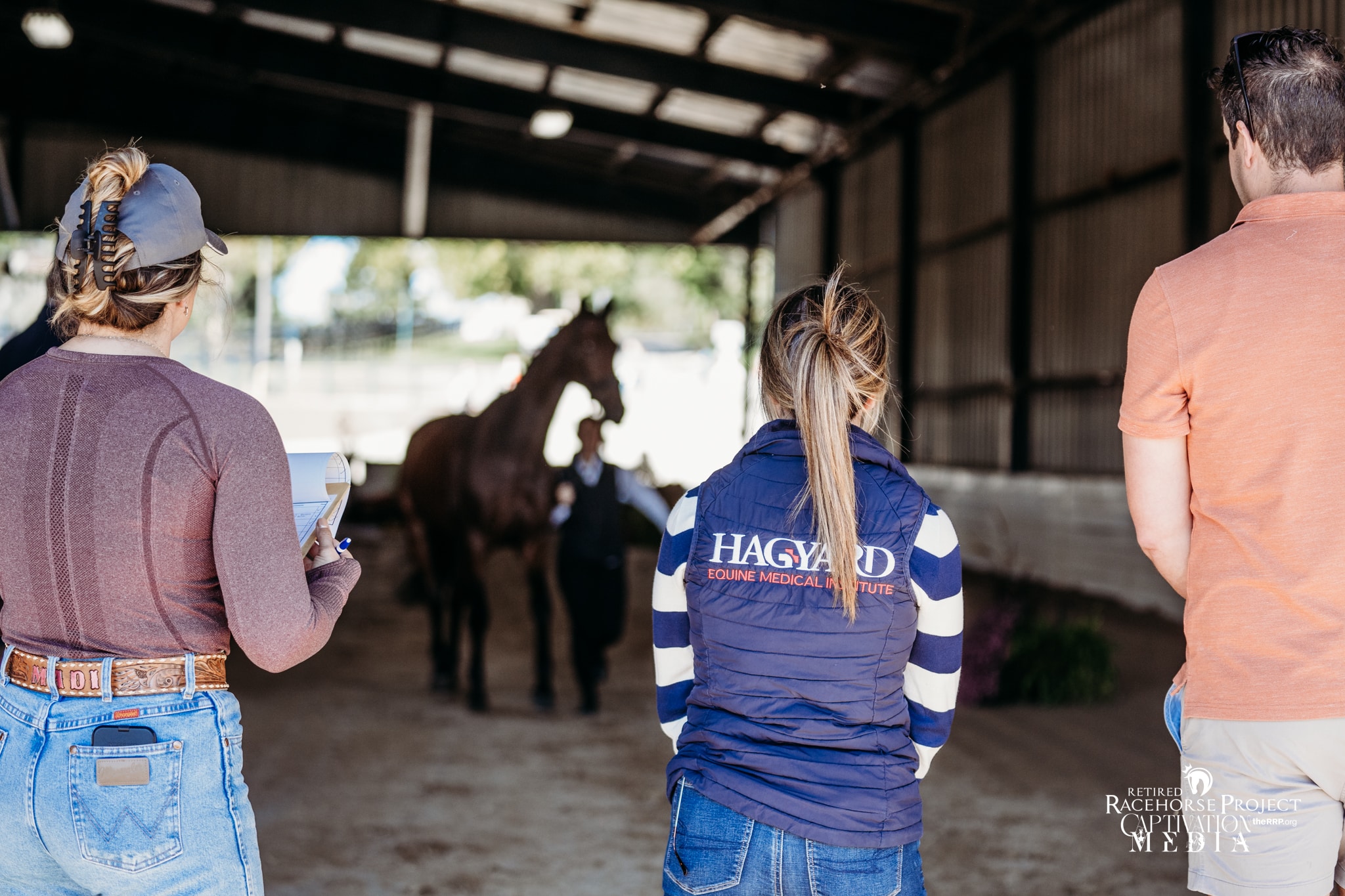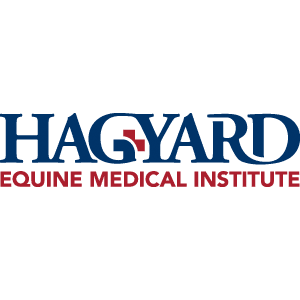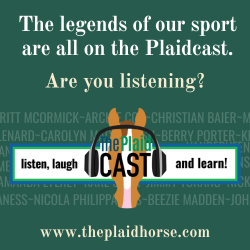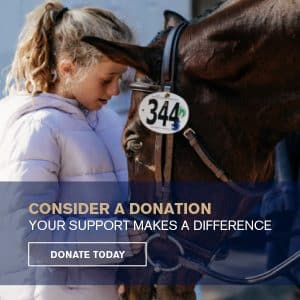
Photo by Captivation Media
Excitement: That is the feeling most potential horse buyers have on the precipice of purchasing their next equine partner. Whether the horse is intended for high level competition or someone’s next trail horse, the thrill and anticipation of that new adventure is palpable.
Anxiety, worry, dread: All emotions horse buyers may experience in relation to pre-purchase examinations (PPEs). By the time a potential horse buyer decides to request a PPE, all involved parties want the venture to be successful; this often results in a lot of emotion and pressure surrounding a PPE. These sentiments are likely due to the historical and outdated “PASS” or “FAIL” interpretation of clinical findings. So why has this interpretation fallen out of favor? To answer that question, it is important to understand what a PPE is, how a PPE can help a buyer, and what limitations a PPE has.
So, what is a pre-purchase examination (PPE)?
A PPE is a professional service a potential horse buyer can procure from a qualified equine veterinarian with the goal of removing some of the unknowns when purchasing a horse. In the simplest of terms, the PPE is a single day assessment of a horse’s soundness and health at the time of the exam. It is a more involved and time-consuming examination compared to other veterinary appointments, as it is a combination of multiple types of examinations. These include, but are not limited to, a basic physical, dermatologic, ophthalmic, oral, neurologic, musculoskeletal, gait, and flexions. Buyers also have the option of choosing to include other diagnostics such as digital radiographs, ultrasound, upper airway endoscopy, and bloodwork.
How can a PPE help a buyer?
A PPE provides a baseline look at a horse’s health and soundness on the day and time of the examination. At the very most, it can give the buyer a general risk assessment prior to purchase; risk being a relative term and based on several factors set out by the buyer and/or trainer as it relates to what the horse will potentially be doing. Buyers often utilize findings from a PPE examination to negotiate a horse’s price or specific contract conditions.
What are the limitations of a PPE?
What a PPE cannot do is speak to what the horse looked like yesterday, tomorrow, or even a year from the date of the examination; it does not and is not intended to provide guarantees for future health. Ultimately, the PPE should be looked at as a fact-finding mission that allows the buyer to make a more informed decision prior to purchasing the horse. This is why it is important for a buyer to understand that a horse does not “PASS” or “FAIL” a pre-purchase examination. There are many factors that go into whether a horse is suitable for a buyer, many of which are not related to what a veterinarian can tell you on purchase examination; ultimately it is up to the buyer, trainer, or combination of such to decide. Past personal experiences, performance records, purchasing price, and other components all contribute to whether a buyer should move forward with purchasing a horse.
When it comes down to it, it is important to understand why the “PASS” or “FAIL” interpretation is not acceptable in most cases. This is due to the wide range of jobs and intended careers that horses can have. A horse posing an increased risk to an individual looking for a 1.40m jumper may be less of a risk for someone interested in a 1.10m jumper. Just as a horse that poses a larger risk to someone interested in international hunter derby competitions may be very successful as a 2’6 children’s hunter.
How can I get the most out of a PPE?
- Know your goal.
What kind of horse are you looking for? What job are you looking for that horse to do now and potentially in the future? Would you sell this horse in the future? Are there any hard “NO” items to clinical findings on a PPE?
- Work with a trainer you know and trust.
A good trainer will help define goals and assist you in finding a horse that will fit the bill. They will also be able to guide you through the pre-purchase process with regards to whether specific findings are a “make or break” for your goals.
- Work with a veterinarian familiar with PPEs.
Not every veterinarian performs PPEs. If the veterinarian you know and trust does not regularly perform PPEs, it is worth asking them to recommend a colleague that does. Have a conversation with the veterinarian you employ for the PPE prior to the appointment to ensure your goals and expectations are clearly communicated.
- Set a budget.
PPEs can become very pricey depending on the number of diagnostics utilized. It is important to know how much you are willing to spend up front and communicate that clearly with your veterinarian before the day of the PPE.
- Have an open mind.
No horse is perfect. The only guarantee that can be made when it comes to PPEs is that the veterinarian will find at least one thing wrong with any and every horse that has ever undergone or will undergo a PPE. The question is, can you as the buyer accept that single imperfection, or multiple, discovered about that horse? This is where knowing your goals and having professional guidance can assist with differentiating what clinical findings would be performance limiting and which ones can be lived with.
In closing, pre-purchase examinations do not need to be anxiety inducing or stressful experiences. The more preparation and communication that occurs prior to scheduling will assist in making the overall experience smoother. If a buyer passes on a horse after a pre-purchase examination, it has not “FAILED” that examination; it is simply a better fit for a different job with a different buyer.
About Jessica Gould, DVM, MS, Performance Medicine & Lameness, Hagyard Equine Medical Institute: Dr. Gould is originally from Hanover County, Virginia, where she grew up riding hunters. She attended undergraduate school at Virginia Polytechnic Institute and State University (Virginia Tech, Go Hokies!), completing dual Bachelor of Science degrees in Animal and Poultry Sciences and Biology. She then went on to graduate school at University of Kentucky, where her studies focused on equine parasitology. Dr. Gould returned to Blacksburg, Virginia to attend the Virginia-Maryland College of Veterinary Medicine and earned her Doctor of Veterinary Medicine in 2015. After graduation, Dr. Gould completed a yearlong combined hospital and ambulatory internship at Blue Ridge Equine Clinic in Earlysville, Virginia, during which she found her affinity for sports medicine. She completed a second internship, focused on sport horse practice, with Dr. Duncan Peters and Dr. Lori Bidwell at East-West Equine Sports Medicine; during this time, she became a FEI treating veterinarian and served as an official show veterinarian for the Great Lakes Equestrian Festival. From 2017 to 2019, Dr. Gould was an associate veterinarian for Foxwood Equine Sports Medicine. While working for Foxwood, she completed acupuncture training at the Chi Institute. She’s also had the pleasure of working with clients in multiple states at multiple shows. In her free time, she enjoys spending time on her farm with her family, and riding her horse, Declan, in Hunter Jumper shows.



